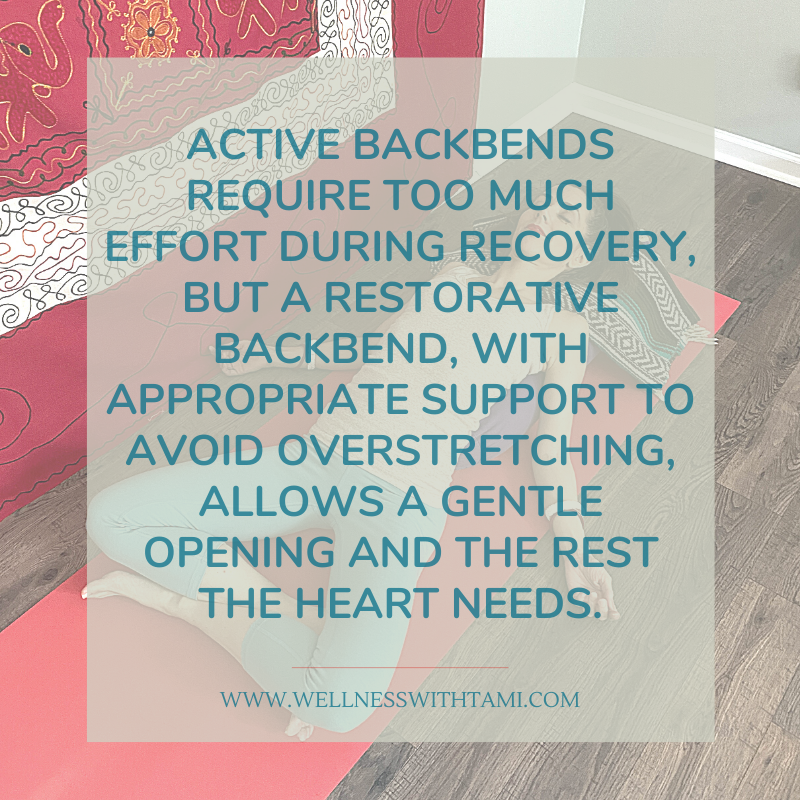6 Ways Yoga Supports Heart Health
I never got to meet my maternal grandfather outside of the womb. When I was just a few weeks in utero, Papa passed away at just 45 years old from a severe heart attack that was misdiagnosed as heartburn and indigestion.
I could cite many other cases of heart disease among people I know—some who are winning the battle and some who lost it, including a high school friend who left his body suddenly in his early-40s and my brother-in-law. (See my post What a Grade School Assignment is Teaching Me Today to read about what I’m learning about grief through losing my brother-in-law.)
Chances are you know someone with heart disease as well, and that person might even be you.
Modern medicine has come a long way, but not enough to prevent heart disease from still being one of the leading causes of death in the U.S. and the world. COVID-19 has overtaken heart disease in the number one spot, but why? In part, because it seems to hit those with underlying conditions, like heart disease, harder.
It’s National Heart Month here in the U.S., an event that President Lyndon B. Johnson started to raise awareness about heart disease, and the statistics from the latest update from the American Heart Association are enough to stress out anyone. (1)
I'm a big believer in the wisdom that what you put your attention on grows, so instead of focusing on the worsening numbers, I’m writing to you with a few “Did you know that...?” tidbits about yoga and heart health to empower you to stand up for your self-care.
So, did you know that…
…how yoga affects your heart health depends on what you practice, the way you practice, and your individual health? There’s no one size fits all approach. Preventative practices differ greatly from management and recovery methods.
…inverted poses temporarily increase blood pressure? If you have unmanaged high blood pressure, it’s best to stay away from going upside down. Instead, you’ll find it helpful to stick with a practice that helps you feel less anxious, stressed, and aggravated, and gives you a sense of being grounded, calm and open, such as seated forward bends and supported backbends.
…in a healthy person, active unsupported backbends (like Bhujangasana/Cobra or Urdhva Dhanurasana/Upward Bow) are energizing and stimulating for the heart, but someone recovering from a heart procedure will benefit more from gentle, supported backbends (like Supta Baddha Konasana/Reclining Bound Angle)? Not all backbends are the same. The heart, like any muscle, needs time to restore itself after an event or procedure. Active backbends require too much effort during recovery, but a restorative backbend, with appropriate support to avoid overstretching, allows a gentle opening and the rest the heart needs.
…breathing through your nose can lower your heart rate, along with many other benefits? Common wisdom for heart health prescribes doing cardiovascular workouts, but when you start breathing fast through your mouth, you engage the sympathetic (fight or flight) nervous system, according to the book Mind, Body, Sport, by Dr. John Douillard. When you nose breath even while exercising, you drive oxygen further down into your lungs, and activate nerve receptors for the parasympathetic (rest and digest) nervous system. (2) In other words, mouth breathing stresses your system, and nose breathing calms it.
…meditation can powerfully reduce your risk of having a heart attack or stroke? According to a Harvard Health Publishing article from August 2013, research confirms that people who practice meditation are dramatically less likely to have a heart attack or stroke. (3)
…yoga offers powerful techniques—including and beyond the postures, breathing, and meditation—that relax the mind and body and help mitigate stress, one of the key contributing factors to inflammation and heart disease? It’s way more than exercise. For example, eating a clean, healthy diet is part of the yogic practice of Saucha (Cleanliness) and also can contribute to better heart health. And that shaming yourself for having high cholesterol or high blood pressure? It violates the yogic principle of Ahimsa (Non-Violence or Peace) and only stresses you out more, which can then worsen your heart condition. Better to follow the yogic virtue of Tapas (Perseverance) and do what’s in your control to improve your health.
I could go on and on about how yoga can contribute to cardiovascular risk reduction and recovery.
Now, I’m not a medical provider, so what I’m offering here is not intended to be a substitute for professional medical advice, diagnosis, or treatment. Always seek the guidance of your physician or other qualified health care provider with any questions you may have regarding your heart health.
None of yoga’s gifts or the advice of your doctor will matter unless you’re willing to take that first step of choosing to make a change. I know it can be daunting and scary. I’m here to hold your (virtual) hand and whisper in your ear, “You can do this! I know you can.”
Speak Your Truth
How do you help keep your heart healthy? What’s your biggest challenge to living a happier, healthier more inspired life? Let me know in the comments.
In wellness, joy, and inspiration,
Tami
https://www.heart.org/en/about-us/heart-and-stroke-association-statistics?uid=1740
Douillard, John, Mind, Body, Sport: The Mind-Body Guide to Lifelong Health, Fitness, and Your Personal Best. Three Rivers Press, NY. 1994, 2000, 2001.
https://www.health.harvard.edu/heart-health/meditation-offers-significant-heart-benefits
P.S. Releasing stress is the key to improving your heart health. Want to learn my 4 Simple Secrets to Making Meditation Possible so you can let go of tension in just a few minutes? Grab yours for free now.

